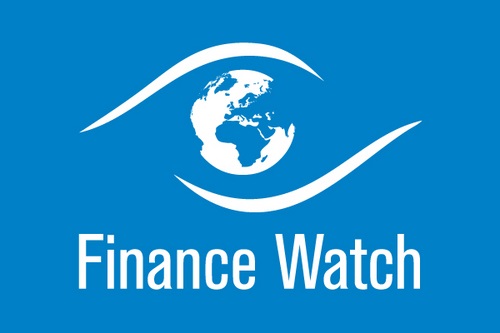Sustainable Finance: EU becomes a global leader, but trillions unlikely to shift
Finance Watch welcomes the publication of the European Commission’s Action Plan Financing Sustainable Growth

The breadth of issues tackled by the Action Plan undoubtedly makes the EU one of the global leaders in advancing a Sustainable Finance agenda. However, it will fail to deliver on its core objective of “reorienting capital flows towards a more sustainable economy” as it falls short of confronting the key drivers of capital allocation in our financial system.
First and foremost, it avoids the fact that the financialization of our economy over the past three decades, by shifting capital from public to private balance sheets while at the same time deregulating the private sector, has taken away any democratic oversight – let alone sovereignty – over the creation and allocation of credit and capital.
Yet, due to the scale of the challenges, only a direct and effective articulation between such societal objectives (in the form of a robust EU plan to implement Sustainable Development Goals) and the creation and allocation of credit and capital in the financial system (starting with guidelines [1]) leaves us a chance of succeeding.
Benoît Lallemand, Secretary General, said:
“The short-termism of the financial system and the growth of speculative activities over the past three decades have contributed significantly to accelerating environmental degradation, increasing inequalities and weakening social protection standards.
“We should have learned by now what happens when you leave all decisions to markets. Society is left to beg the financial sector to help with the financing of crucial objectives such as the Paris Agreement. The servant has become the master. It is high time we stop shying away from reclaiming democratic sovereignty over finance.”
The European Commission’s Communication on its Action Plan reminds us that “we are increasingly faced with the catastrophic and unpredictable consequences of climate change”, alluding to the fact that our economies are fundamentally unsustainable. But it does not address the root cause of our unsustainable system, i.e. a massive market failure: the negative externalities resulting from economic activity are not priced in.
For fossil fuels alone, the IMF estimates that yearly subsidies (mostly negative externalities not priced in) amount to $ 5 trillion.[2] These subsidies are the reason why the financial sector is not investing in the energy transition. Taxonomies and labels cannot compete with a $ 5 trillion subsidy when it comes to influencing investment decisions. Economic regulation is needed to reorient private capital in the right direction.
Nina Lazic, Research and Advocacy Officer, said:
“The Commission Action Plan is an important step forward and should be delivered with a sense of urgency. Indeed it is only the first step in a transformation of the relationship between finance and the economy. What is needed are adequate public policies which regulate the economic framework in which financial returns are created”.
Failing to remove direct and indirect subsidies to unsustainable activities will also make ineffective the proposals for “mainstreaming sustainability into risk management”. Sustainability risks will only have an impact on investment decisions at scale once they become financial risks.
For further information
www.finance-watch.org.

